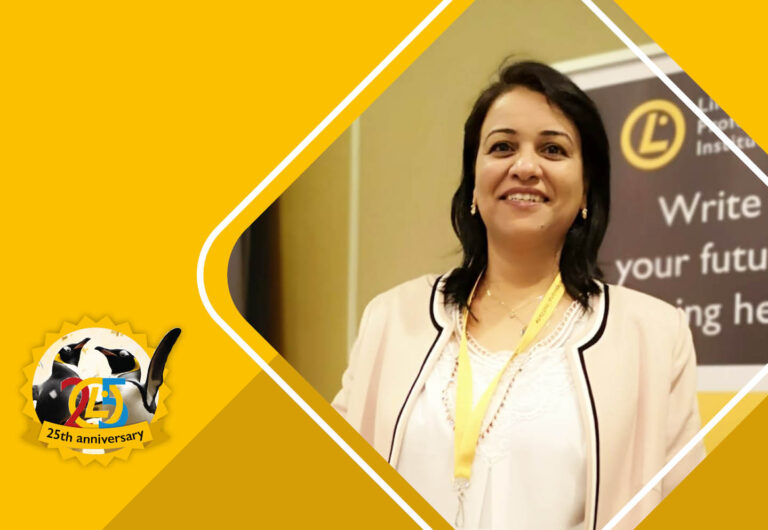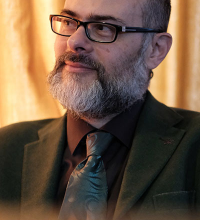A Transformative Force: Sonia Ben Othman and LPI in North Africa

Discover how Sonia Ben Othman, a trailblazer in the Linux and open source community, has transformed education and certification across North Africa and beyond. From building partnerships to empowering young graduates, her inspiring journey highlights the impact of open source on digital skills development globally. Whether you’re new to Linux or a long-term advocate for open source, this article offers valuable lessons and practical advice to shape your career. We are thrilled to have interviewed Sonia, as part of our LPI25 anniversary celebrations, about her work as founder of the Linux training and certification company TrainNux in Tunisia and as LPI Partnership Development Representative.
Where were you 25 years ago?
Twenty-five years ago, I was in France, working on my thesis and completing an internship for my master’s degree in New Educational Technologies. It was an exciting time as I explored how emerging digital tools could be applied to education—a field just beginning to recognize technology’s potential. This experience laid the foundation for my future work, especially in open source software and certifications like those offered by LPI.
How old were you when you started working with Linux?
I began working with Linux and LPI when I was 29. My company, TraiNux, has since been pivotal in bringing LPI’s certification programs to sectors ranging from universities to government bodies. We’ve collaborated with the Tunisian Ministry of Higher Education, the Tunisian Ministry of Defence, and numerous North African universities. One milestone was our partnership with the Ministry of Communication Technologies in Tunisia, which aimed to certify 20,000 graduates to enhance their employability through LPI certifications.
In our early work with universities, we had to be creative to address the lack of a dedicated budget for certification. To make it work, we bundled voucher costs under general « training » expenses. After years of advocacy, institutions began to recognize the importance of formal certifications, eventually establishing a dedicated budget line—a major win for skill validation across the region.
Additionally, we’ve partnered with the Organisation Internationale and various universities to develop the Educational Platform Certiformat and support the Centres des Compétences (4C) initiative, which equips young graduates with essential tech skills. We’ve also translated exams and materials to make LPI resources more accessible across North Africa—an achievement I’m particularly proud of.
Looking ahead, where do you think Linux will be in 5 and, maybe, in 25 more years?
In the next five years, I see myself continuing to grow with LPI, expanding our reach into new countries, and encouraging more organizations to embrace Linux education and certification. There’s substantial untapped potential for Linux in regions just beginning to explore its possibilities. By working together, we can empower more individuals to exploit the strength of open source technology, as we have in North Africa.
Looking 25 years ahead, I expect Linux to be even more foundational. As technologies like AI, cloud computing, and cybersecurity evolve, Linux will remain a backbone of innovation. I see LPI playing a crucial role in equipping people worldwide with the skills and certifications to thrive in this dynamic landscape. I hope to continue contributing to that mission, shaping the future of Linux education and certification for the next generation.
What are some of the most significant lessons you’ve learned from your journey in promoting open source education and certification?
Promoting open source education and certification has taught me the importance of persistence, adaptability, collaboration, and empowerment. It took years of dedication to convince traditional institutions of the value of Linux and open source certifications, proving that commitment is essential to secure support and funding. Flexibility was also crucial; we worked around budget limitations by categorizing certification costs under « training » to make our goals achievable. Collaboration with ministries, universities, and organizations like the Organisation Internationale de la Francophonie has been vital in expanding access to open source education.
Ultimately, open source education empowers individuals by equipping them with the skills to compete globally and by creating inclusive opportunities, especially for young graduates—a mission that continues to inspire me.
How do you envision LPI’s role in fostering digital skills and bridging educational gaps globally, especially in emerging regions?
I see LPI as a transformative force in building digital skills and bridging educational gaps, especially in emerging regions. By expanding certification programs and partnering with local organizations, governments, and educational institutions, LPI can make affordable tech education accessible where it’s needed most. Localization is key; adapting materials into multiple languages and tailoring content to each region empowers individuals to obtain globally recognized certifications in their native languages. Partnering with coding academies and digital literacy programs also enables LPI to create hands-on learning and mentorship opportunities, bridging the gap from basic digital skills to advanced tech careers. Additionally, by advocating for policies that integrate tech certifications into educational and vocational programs, LPI can support global digital skill-building, providing more people with the tools to thrive in a digital world.
What advice would you give to those just starting out with Linux, especially how it can shape their future careers?
For anyone just starting with Linux, I suggest viewing it as a powerful door-opener, offering practical skills and a mindset that can shape your career. Linux is everywhere: powering servers, cloud platforms, and fields like AI, cybersecurity, and IoT. Learning Linux provides a solid foundation across industries, giving you a strong starting point with countless directions to explore in tech.
To begin, focus on the basics: Get comfortable with the command line, understand file structures, and try out basic scripting. Step-by-step, as you build these skills, you’ll gain confidence and flexibility to explore fields like system administration, networking, or cloud computing—areas that might really spark your interest.
Earning an LPI Certification can structure your learning and showcase your skills to employers. LPI’s certifications are globally recognized and help you stand out, especially in competitive job markets, by demonstrating your dedication and Linux proficiency.
Finally, consider joining the Linux and open source communities, where you can learn and collaborate with others. It’s not just about tech skills; it’s about problem-solving, teamwork, and staying curious. This mindset of continuous learning, combined with an LPI certification, will keep you adaptable and resilient in a rapidly changing tech world.
<< Read the previous post of this series | Read more LPI success stories here >>
